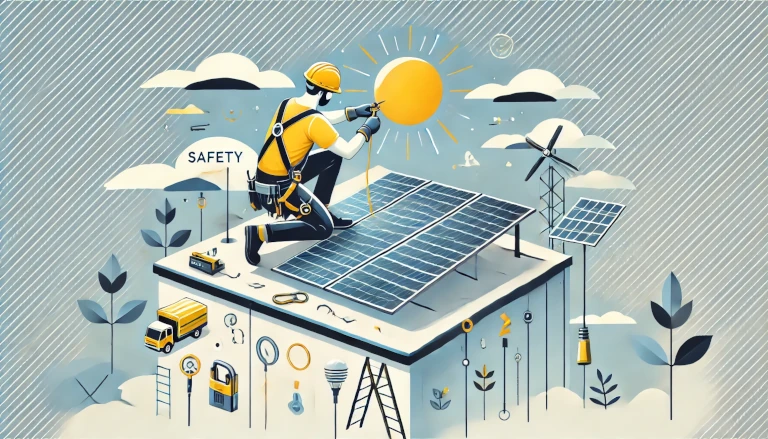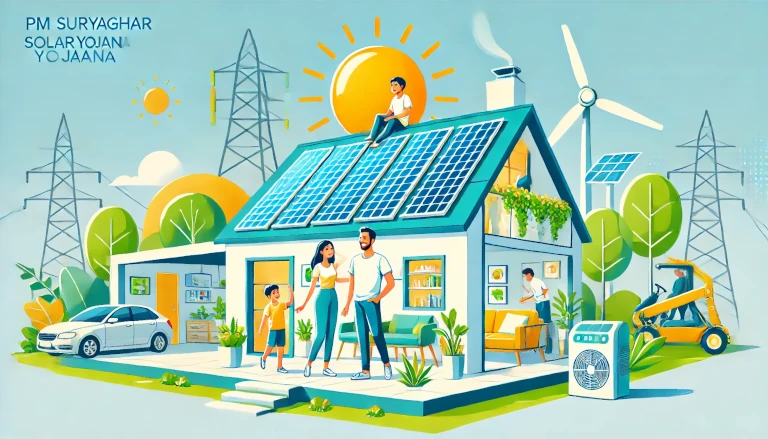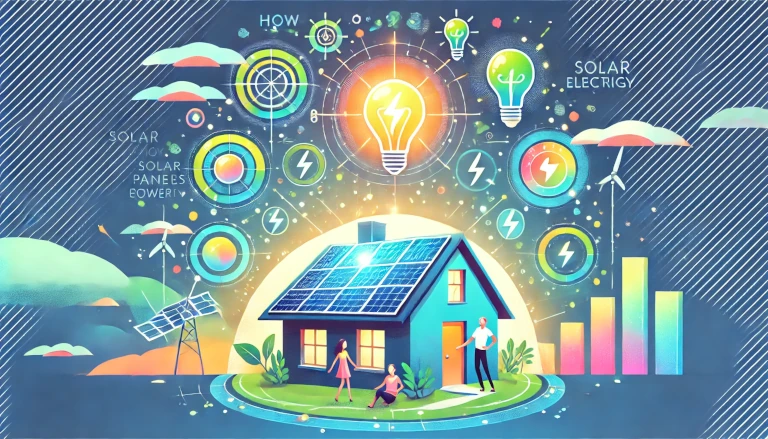Installing solar panels on your rooftop can be a great way to reduce electricity costs and promote renewable energy. However, certain precautions should be taken to ensure a safe and efficient installation. This guide covers essential precautions to consider when installing rooftop solar panels, addressing concerns such as structural integrity, weather resistance, and safety protocols.
Why Take Precautions for Rooftop Solar Installation? ⚠️
Proper precautions are essential for several reasons:
- Safety: Installing solar panels involves working at heights and dealing with electrical components, which can be hazardous without proper precautions.
- Efficiency: Following installation guidelines helps optimize the efficiency and longevity of your solar panel system.
- Building Integrity: Ensuring your roof can support solar panels helps prevent structural damage and costly repairs.
How to Prepare for Rooftop Solar Panel Installation 🛠️
- Assess Roof Condition:
Before installing solar panels, inspect your roof’s condition. Check for any damages or weaknesses that may affect the installation. Roofs in good condition support solar panels better and prevent future issues. - Consult a Professional:
Working with a professional installer ensures that your solar panels are installed safely and correctly. They have the expertise to handle electrical components and roofing challenges, ensuring compliance with safety standards. - Check Local Regulations and Permits:
Verify if your area requires permits for rooftop solar installations. Some regions have specific regulations, such as panel placement, height restrictions, or building codes, which need to be followed.
Where to Place Solar Panels on Your Rooftop? 🏠
Choosing the right location on your rooftop is crucial for maximum efficiency:
- Sunlight Exposure: Panels should be installed in areas that receive direct sunlight for most of the day, typically south-facing sections in the Northern Hemisphere.
- Avoid Shaded Areas: Nearby trees, chimneys, or neighboring buildings can cast shadows, reducing the panels’ energy output. Ensure the area is free from shading.
- Roof Orientation and Tilt: For optimal performance, your panels should be tilted at an angle that aligns with your location’s latitude to capture the most sunlight.
What Are the Key Safety Precautions? 🧰
Structural Safety:
- Weight Capacity: Ensure your roof can handle the additional weight of the panels and mounting equipment. A structural engineer can assess if any reinforcements are needed.
- Wind Resistance: Use mounting systems designed to withstand local wind speeds and weather conditions, preventing damage during storms.
Electrical Safety:
- Proper Wiring and Grounding: Ensure that all electrical components are correctly wired and grounded to prevent electrical hazards.
- Certified Installers: Hiring certified professionals guarantees that the installation complies with safety standards, reducing the risk of electrical malfunctions.
When to Schedule Rooftop Solar Installation? 🕒
Timing plays a role in ensuring a smooth installation process:
- Dry Season: Installing solar panels during dry weather helps avoid complications due to rain or moisture. Typically, summer or early autumn are ideal.
- Roof Maintenance: If your roof needs repairs, complete them before installing solar panels. This will avoid the need to uninstall panels for roof work later on.
How Much Does It Cost to Take Necessary Precautions? 💸
While costs vary depending on the specific requirements, here are some typical expenses:
- Structural Assessment: A roof assessment may cost between ₹5,000 to ₹15,000, depending on the professional and location.
- Professional Installation: Solar panel installation costs range from ₹40,000 to ₹70,000 per kW, covering materials, labor, and safety measures.
- Permits and Documentation: Permit fees range from ₹2,000 to ₹10,000 based on local regulations.
Investing in these precautions enhances the safety and efficiency of your solar system, protecting your home and ensuring long-term savings.
Advantages and Disadvantages of Rooftop Solar Panel Installation 📈📉
Advantages:
- Maximized Sunlight Exposure: Rooftop installations typically receive more sunlight, generating more power than ground-mounted systems.
- Space-Saving: Rooftop installations utilize unused roof space, preserving yard or garden areas.
- Increased Property Value: Properly installed solar panels can boost property value and attract eco-conscious buyers.
Disadvantages:
- Initial Cost: Rooftop solar installations can be expensive, though they save money in the long run.
- Limited Roof Space: Small or crowded rooftops may not have enough space for large solar systems.
- Maintenance Challenges: Rooftop panels may be harder to clean and maintain due to accessibility issues.
Cost Benefits of Taking Precautions 🏷️
Taking precautions during installation may increase upfront costs but provides significant long-term benefits:
- Reduced Repair Costs: Ensuring your roof is prepared for solar panels helps avoid future repairs, saving money over time.
- Extended System Lifespan: Proper installation and safety measures enhance the lifespan of your solar panels, maximizing your investment.
- Energy Savings: Optimally placed and securely installed solar panels generate more energy, offering greater savings on electricity bills.
For example, by investing ₹1,50,000 in a 3kW solar system with proper safety measures, you can potentially save ₹42,000 annually on electricity bills, achieving a break-even point in approximately 3.5 years.
How to Choose the Right Rooftop Solar System Installer? 📋
When selecting an installer, consider:
- Certification and Experience: Look for certified professionals with experience in rooftop installations to ensure quality and safety.
- References and Reviews: Check reviews and ask for references to gauge the installer’s reputation and service quality.
- Warranty and Support: Choose installers who offer warranties on both labor and materials, providing peace of mind and post-installation support.
Taking the necessary precautions when installing solar panels on your rooftop is essential for ensuring safety, efficiency, and long-term cost savings. From assessing roof strength to hiring professional installers, these steps help protect your home while maximizing the benefits of solar energy. By carefully planning your installation, you can enjoy sustainable energy and reduced electricity costs for years to come.
Discover more from Green Ecosystem - Renewable Energy, Agriculture, and Environmental Sustainability
Subscribe to get the latest posts sent to your email.


